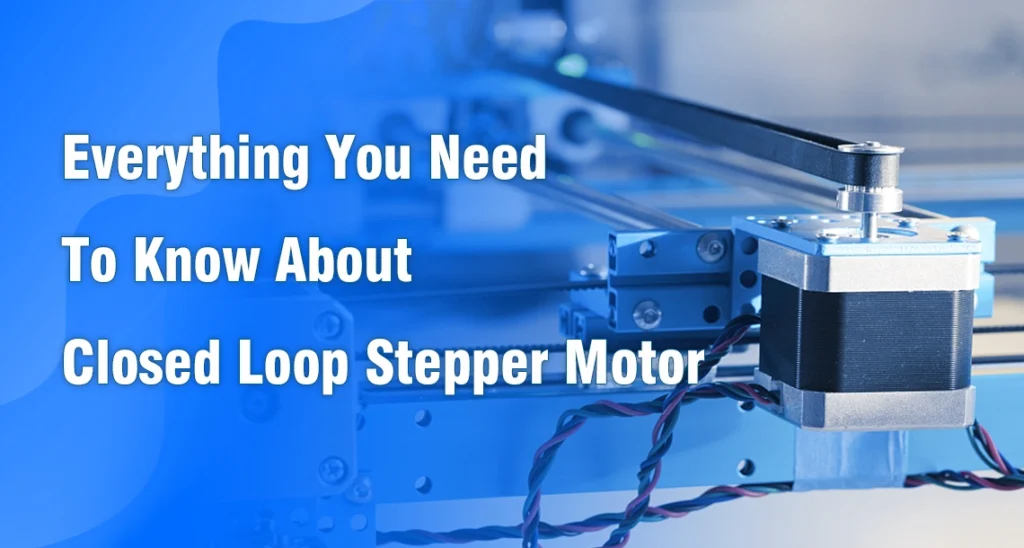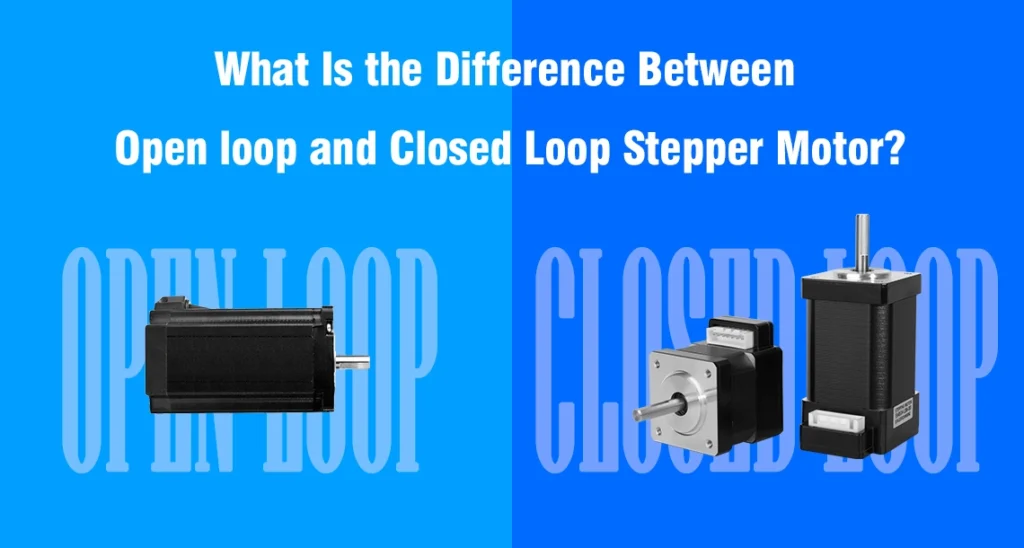Closed loop stepper motors have revolutionized the world of automation by offering precise control and feedback mechanisms. These motors are a popular choice for various industrial and commercial applications due to their reliability and accuracy. However, to unleash their full potential, it’s crucial to pair them with the appropriate power supply. In this guide, we’ll delve into the intricacies of selecting the right power supply for closed loop stepper motors.
Understanding Closed Loop Stepper Motors
Before we dive into power supply considerations, let’s briefly understand closed loop stepper motors. Unlike traditional open loop stepper motors, closed loop systems incorporate feedback mechanisms such as encoders to continuously monitor and adjust motor position. This ensures precise positioning, even in dynamic or unpredictable environments, making them ideal for applications where accuracy is paramount.
Factors to Consider When Choosing a Power Supply
When selecting a power supply, several factors warrant consideration: voltage and current ratings, power output, efficiency and stability, overcurrent and overvoltage protection, size and form factor, reliability and efficiency, temperature considerations, integration and compatibility, cost-effectiveness, and environmental impact.

- Voltage and Current Ratings:
Closed loop stepper motors typically come with specified voltage and current ratings. It’s essential to match these ratings with those of the power supply to ensure optimal performance. For example, if your stepper motor operates at 24 volts and draws a current of 2.5 amps, you’ll need a power supply capable of delivering at least 24VDC and 2.5A.
- Power Output:
Calculate the power output required for your application by multiplying the voltage and current ratings of the stepper motor. For instance, if your motor operates at 24VDC and draws 2.5A, the power output would be 60 watts (24V * 2.5A = 60W). Choose a power supply with a power output slightly higher than this value to account for any potential voltage drops or fluctuations.
- Efficiency and Stability:
Opt for a power supply with high efficiency and stability to ensure reliable operation of your closed loop stepper motor system. Look for power supplies with low ripple voltage and good voltage regulation to minimize the risk of motor stalling or overheating.
- Overcurrent and Overvoltage Protection:
Invest in a power supply equipped with overcurrent and overvoltage protection features to safeguard your stepper motor from damage due to electrical faults or fluctuations. These protections help prevent excessive current or voltage from reaching the motor, prolonging its lifespan and ensuring uninterrupted operation.
- Size and Form Factor:
Consider the size and form factor of the power supply, especially if space is limited in your application. Choose a compact and lightweight power supply that can be easily integrated into your setup without compromising on performance or reliability.
Example Scenario:
Let’s consider an example scenario to illustrate the selection process. Suppose you have a Closed loop stepper motor with the following specifications:
Voltage Rating: 48VDC
Current Rating: 5A
Power Output: 240 watts
In this case, you would need a power supply capable of delivering at least 48VDC and 5A with a power output of 240 watts, 380 watts, or higher. Additionally, look for a power supply with overcurrent and overvoltage protection features to ensure the safety of your motor.
- Efficiency and Reliability:
Efficiency and reliability are paramount considerations in industrial applications. A highly efficient power supply minimizes energy wastage and reduces heat generation, prolonging the lifespan of both the power supply and the motor. Look for power supplies with reputable reliability ratings and adequate protection features, such as overvoltage and short circuit protection, to safeguard against unforeseen mishaps.
- Temperature Considerations:
Temperature can significantly impact the performance and longevity of closed loop stepper motors. Excessive heat can degrade motor components and lead to premature failure. Therefore, opt for a power supply designed to operate within the motor’s recommended temperature range. Additionally, consider environmental factors such as airflow and enclosure design to optimize cooling and thermal dissipation.
- Integration and Compatibility:
When selecting a power supply, consider its compatibility with existing motor drivers and control systems. Ensure that the power supply interfaces seamlessly with the motor driver and provides the necessary voltage levels and signal compatibility. Compatibility issues can lead to operational inefficiencies and compatibility issues, so thorough compatibility testing is advisable before deployment.

- Cost-Effectiveness:
While quality should never be compromised, cost-effectiveness remains a crucial factor in any purchasing decision. Evaluate the overall cost of ownership, including initial purchase price, maintenance, and energy consumption, to determine the most cost-effective solution that meets your performance requirements. Additionally, consider long-term reliability and support services offered by the manufacturer.
- Environmental Considerations:
Environmental factors such as humidity, dust, and vibration can impact the performance and longevity of both the power supply and the motor. Choose a power supply with appropriate environmental ratings, such as IP (Ingress Protection) ratings for dust and moisture resistance, and robust construction to withstand harsh operating conditions.
Conclusion
Choosing the right power supply is essential for maximizing the performance and longevity of your closed loop stepper motor system. By considering factors such as voltage and current ratings, power output, efficiency, and protection features, you can ensure reliable operation in your application. Invest in a high-quality power supply that meets the specific requirements of your stepper motor to unleash its full potential in automation and control applications.
FAQs: Choosing the Right Power Supply for Closed Loop Stepper Motors
Q1: What happens if I use a power supply with a lower voltage rating than my stepper motor’s specifications?
A1: Using a power supply with a lower voltage rating may result in inadequate torque and performance from the stepper motor. It may struggle to reach its rated speeds and could potentially stall under load.
Q2: Can I use a power supply with a higher current rating than what my stepper motor requires?
A2: Yes, you can use a power supply with a higher current rating without any adverse effects on your stepper motor. The motor will only draw the current required, so having a higher current rating in the power supply provides a safety margin.
Q3: Why is efficiency important in a power supply for closed loop stepper motors?
A3: Efficiency is important because it directly impacts power consumption and heat generation. A more efficient power supply will waste less energy as heat, resulting in lower operating costs and better reliability in the long run.
Q4: What should I do if my stepper motor is overheating with the current power supply?
A4: If your stepper motor is overheating, it could indicate that the power supply is not providing sufficient current or voltage. Check if the power supply meets the motor’s specifications and consider upgrading to a higher-rated power supply if necessary.
Q5: Do I need to consider the ambient temperature when selecting a power supply for my closed loop stepper motor?
A5: Yes, ambient temperature can affect the performance and reliability of both the stepper motor and the power supply. Choose a power supply with a temperature rating suitable for your operating environment to ensure stable operation.
Q6: What is the importance of overcurrent and overvoltage protection in a power supply for closed loop stepper motors?
A6: Overcurrent and overvoltage protection features help safeguard the stepper motor from damage due to electrical faults or fluctuations. These protections can prevent excessive current or voltage from reaching the motor, extending its lifespan and ensuring uninterrupted operation.
Q7: Can I use a switching power supply or should I opt for a linear power supply for my closed loop stepper motor?
A7: Both switching and linear power supplies can be suitable for powering closed loop stepper motors. Switching power supplies are generally more efficient and lightweight, while linear power supplies offer better voltage regulation and lower electromagnetic interference. Choose the type that best suits your specific application requirements.



